Alas, the two proprietors of the RDHP have over-indulged in holiday cheer and are unable to execute their duties this week.
Through slurred voices, they have asked me to fill in for them. I immediately agreed.
Before 2010 concludes, I want to call to the attention of all horror aficionados a major anniversary that has been shamefully neglected:
2010 marked the 80th anniversary of The Shadow.
Regular readers of the RDHP know that at one time the movies had no voice. Well, there was also a time when television had no picture. It was called radio.
Horror was big on what is now called old time radio (OTR), and The Shadow was one of the major horror programs.
Zombies, Ghosts and Aliens
The Shadow had the power to cloud men’s minds so that they could not see him. He was a vengeful figure who destroyed evil doers. And, most memorable of all, he knew, "what evil lurks in the hearts of men." 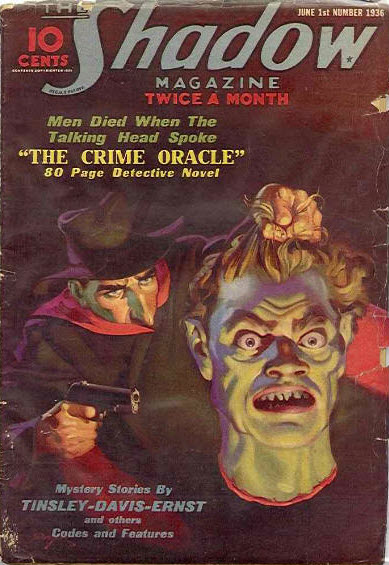 During his long run on radio he did pursue common criminals, but more often he foiled the plans of vampires, zombies, ghosts, werewolves, invaders from outer space, and, of course, an array of madmen.
During his long run on radio he did pursue common criminals, but more often he foiled the plans of vampires, zombies, ghosts, werewolves, invaders from outer space, and, of course, an array of madmen. A glimpse at a few of the episode titles conveys what the show was all about: The Laughing Corpse, They Kill with a Silver Hatchet, The Isle of the Dead, etc.
But folks showed up at the newsstands asking for “…that magazine about the Shadow.” Street and Smith got the message and initiated The Shadow Magazine.
The publication started out as a quarterly, but became so popular that in a few years the magazine was coming out twice a month, each issue featuring a novel length adventure of The Shadow.
The stories were penned by Walter Gibson under the house name of Maxwell Grant. Although uncertain about the exact number himself, Gibson penned at least 280 Shadow novels.
The Shadow Enters the Spotlight
 In 1937 The Shadow ceased to be a narrator and became the hero of his own radio series. The character of The Shadow evolved through the efforts of Gibson and the writers of the radio program.
In 1937 The Shadow ceased to be a narrator and became the hero of his own radio series. The character of The Shadow evolved through the efforts of Gibson and the writers of the radio program. The Shadow was initially a product of the thirties and in many ways reflects that era. He almost embodies the fantasy life of a boy of that decade.
The Shadow's secret identity is that of Lamont Cranston, a "wealthy young man about town."
He is aided in his efforts by his "friend and companion, the lovely Margo Lane ."
Margo (the blonde below) is the only person who knows The Shadow's secret identity.
Incredibly wealthy gents who maintained secret identities as crime fighters were common in the thirties. Another example: Bruce Wayne/Batman. In the late forties, Cranston became a detective but the change was cosmetic and had little impact on the stories, which remained outlandish.
Time for Torture
For its entire 17-year run, The Shadow was heard Sunday evenings at 5:30 p.m. and was regarded as family entertainment. That fact raises eyebrows today. Here, compliments of Jim Harmon's wonderful book, The Great Radio Heroes, is an excerpt from a Shadow script of the late thirties. Lamont and Margo are investigating a series of murders in a small New England town. Margo, as was her custom, becomes trapped by the killer, a madman named Edward.
Edward: In the days of the Puritans, they had a very satisfactory method for dealing with meddlers...they branded them upon the forehead.
Margo: No...no...
Edward: Soon, young lady, soon you shall feel the searing agony of that brand biting into your flesh!
Margo: You're mad...you're mad...
Edward: (Laughing) You won't feel the pain too long...no...you see, after you are branded I have another treat for you...the press...the torture press...
Of course, the Shadow arrives in time and gives Edward his comeuppance. As I recall, he backed Edward into one of his own torture devices.
The Shadow was regarded as harmless entertainment in its day. The stories were so over the top, that they took on a fairy tale quality. After he would dispose of that week's no good, the Shadow would close with this parting thought: "The weed of crime bears bitter fruit...crime does NOT pay...The Shadow knows!" A cackling laugh concluded the show.
Men (and Women) Behind the Mic
The Shadow employed the skills of many fine actors. Only a few can be named here.
In 1937 the lead role was played by Orson Welles who was assisted by Agnes Moorehead as Margo. Ray Collins was heard frequently on the program in its early years. Both Agnes and Ray had major roles in Orson’s Citizen Kane.
Agnes (seen right) would later become known to TV viewers through her role on Bewitched while Ray took on the role of Lt. Tragg in the long running Perry Mason series starring Raymond Burr.
The comedy relief part of Shrevvy, a talkative cab driver, was originally played by Alan Reed. Reed was a very talented actor best remembered today as the voice of Fred Flintstone. Any picture of Alan Reed will reveal that he was also the model that the artists used when they drew Fred.
Enjoy the "Theater of the Mind"
Attempts to transfer The Shadow to a visual medium have not fared well. There was a pilot done for a TV series but it didn’t sell. A Shadow comic book was short lived. There have been a few Shadow movies, none of them successful. Considering this situation, The Shadow has endured remarkably well through reprints of Gibson’s novels and reruns of the radio program.
I have a New Year's suggestion for all readers of the RDHP. Enrich 2011 by listening to some of the great horror programs of radio’s golden age. You have a large variety to choose from: The Shadow, Inner Sanctum, Lights Out, Quiet Please, Hall of Fantasy and many more.
Thanks to Chris and Nick for allowing me to stand on their soap box. I just learned The Shadow has come to their aid and helped pump their stomachs of all that tinsel, egg nog and evergreen needles that put them out of commission.
The lads will return next week and the universe will once again unfold as it should, thanks to... THE SHADOW!
-Jim Meals is a novelist, literary agent, and devoted radio aficionado who resides in San Diego, CA.
RDHP Presents:
Random The Shadow Magazine Covers and Pics

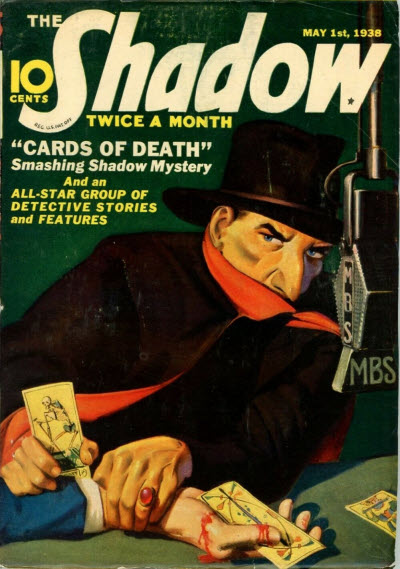


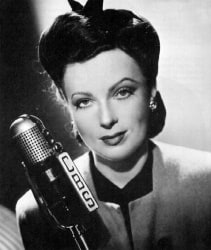

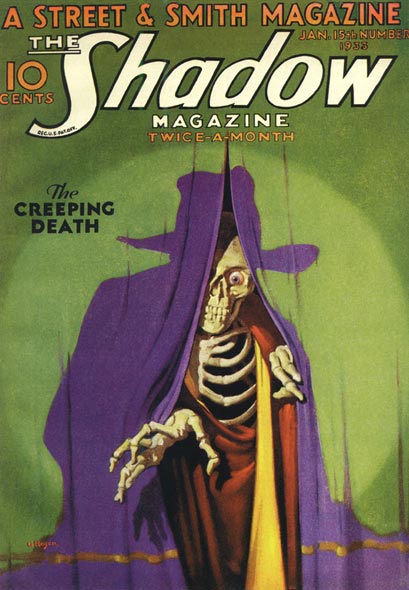
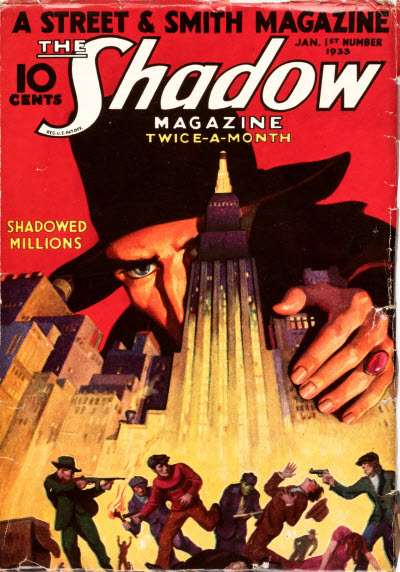
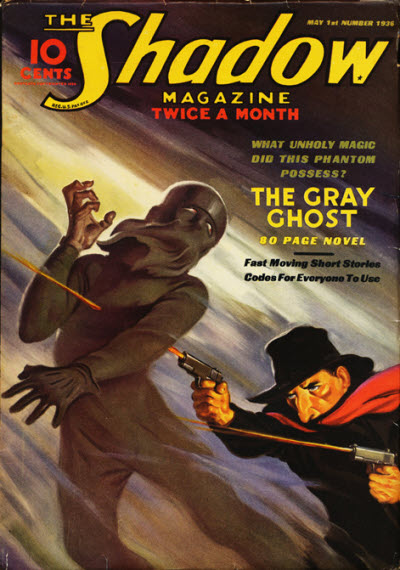
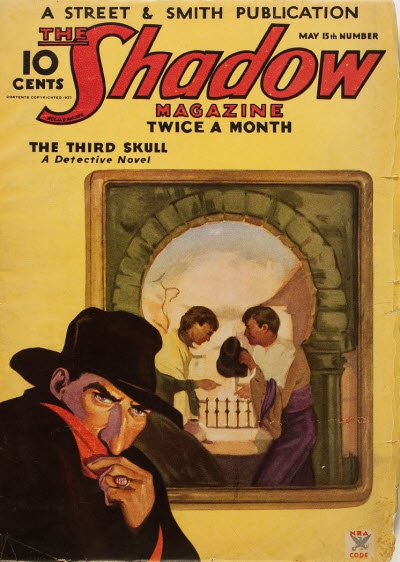
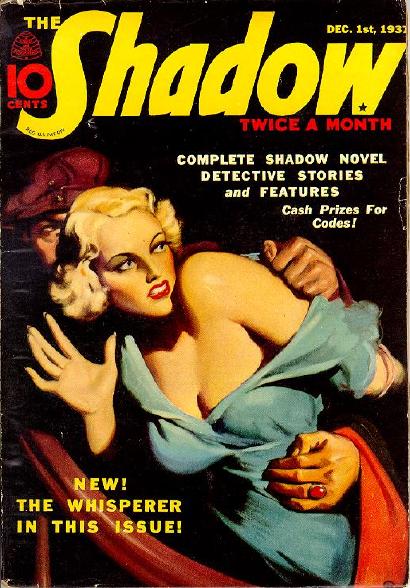
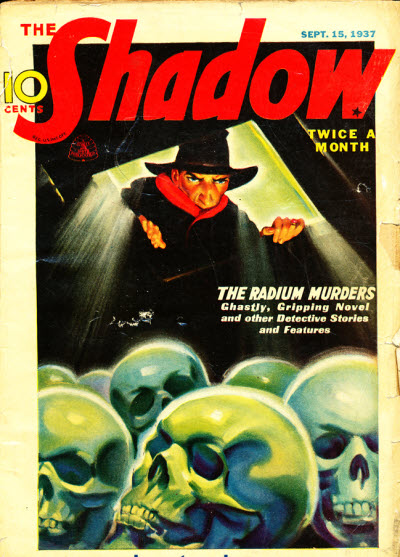
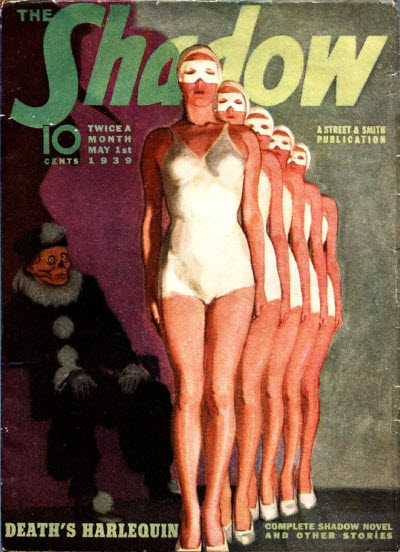
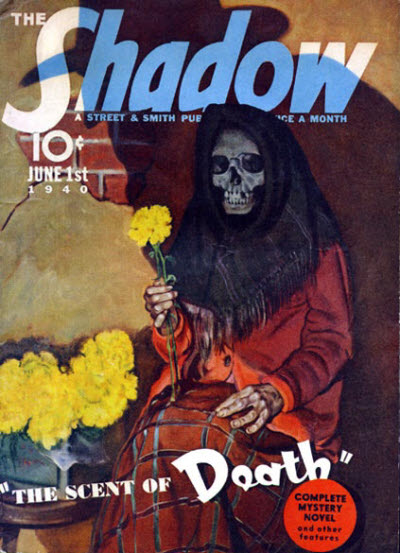
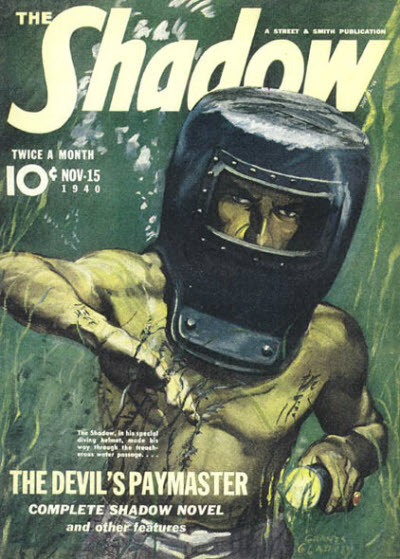
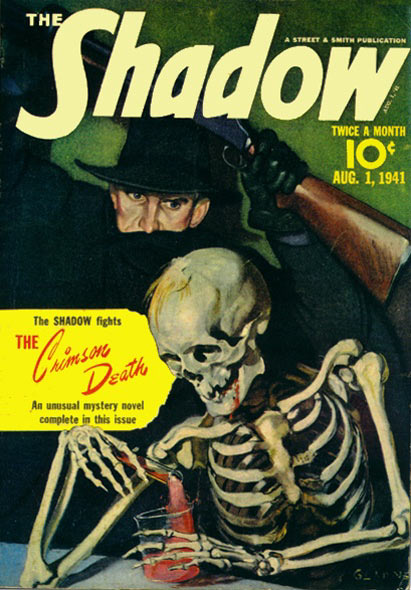
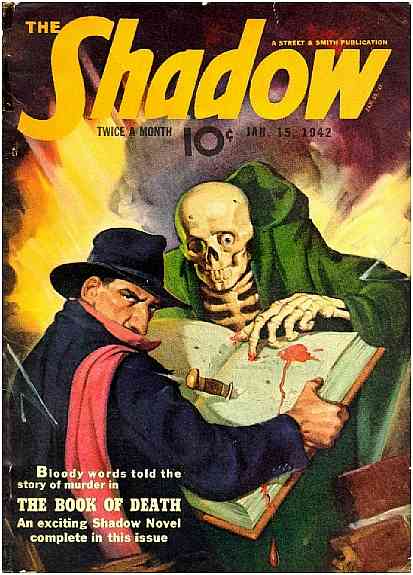
I'm not surprised the Shadow is neglected - he's pre-television pop culture. In our society, that Just Doesn't Exist.
ReplyDeleteThannks for this
ReplyDelete